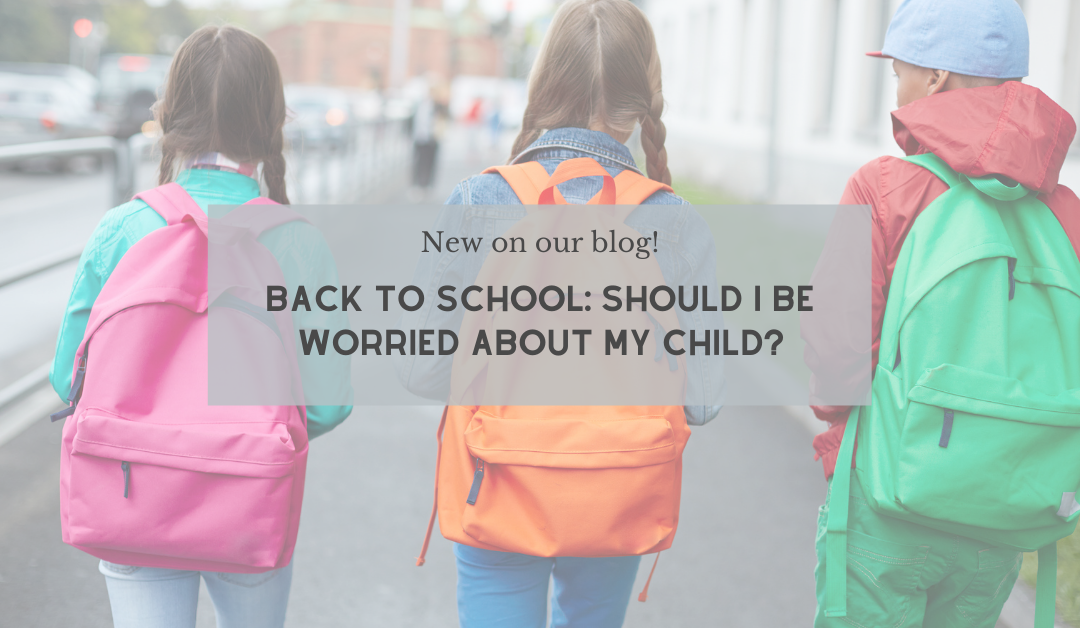
by Keith Murray | Aug 9, 2021 | Blog
This past year, families have navigated altered routines, lockdowns, lack of social activities and so much more – we’ve been in a constant state of flux. As children across the nation return to in-person learning, they’re likely going to experience social hurdles. For many, the behavioral patterns and routines that were taught to them pre-pandemic must be remodeled, retaught and relearned.
After months of remote learning, students’ routines are now taking another 180º turn. This change may be upsetting and scary for children – and that’s OK. There are steps you can take to ease your child’s stress, fear and anxiety as they embark upon a new, unfamiliar school year.
Create a safe space for open communication.
Above all else, your child needs to know that they are loved and heard. Ensure they know they can come to you with any concerns – no matter how large or small. By instilling this practice from a young age, your child learns how to appropriately recognize and express emotions in the moment. If your child has developed unusual behavior tendencies, take the time to break down the problem and find effective solutions and coping mechanisms.
Remain consistent.
All positive behaviors need continued practice …
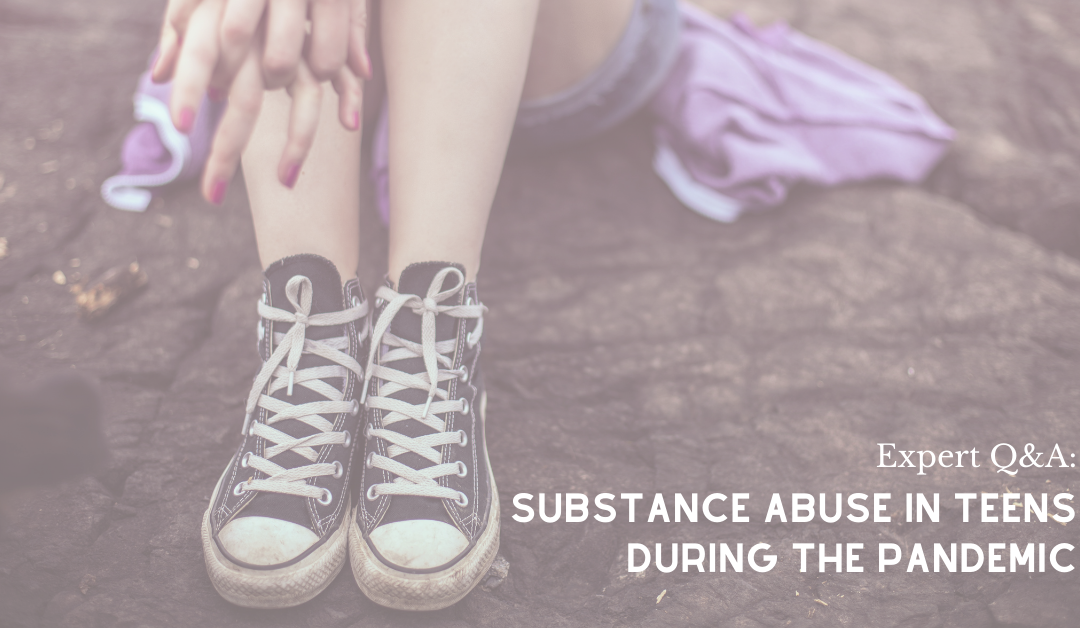
by Sara Hart | May 6, 2021 | Blog
Before the spread of COVID-19, studies showed that an estimated 28.6% of teens abused substances. During the pandemic, that number rose to 30.4%. The pandemic has proven to be difficult on each of us, but it has proven especially difficult on adolescents, as their social, emotional and academic constants have been altered. In honor of Children’s Mental Health Awareness Day (May 7), we sat down with Wendy B., a licensed independent clinical social worker at our Weymouth office, to discuss substance use in teens and its effects on their mental health.
What do you think has led to the rise in teen substance abuse since the pandemic began?
There is an epidemic of anxiety and depression in adolescents, and much of it is because of social media. Kids think they’re being more social, but in reality, they’re actually just sitting on their beds completely alone while scrolling through the platforms. The pandemic has only made it worse. There’s this real isolation, and children aren’t communicating with other human beings. Bullying on social media has also become more prevalent. The anxiety and depression they’re feeling very well could contribute to the rise in substance use.
Substance abuse has become a …
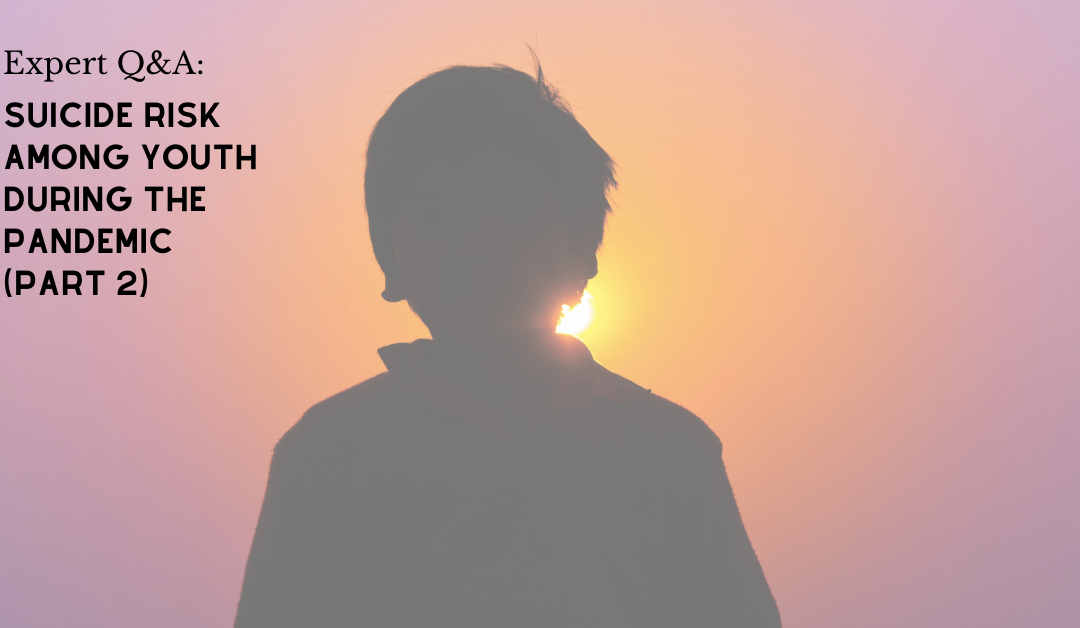
by Sara Hart | Mar 25, 2021 | Blog
In honor of Self-Injury Awareness Month, we’re back with Part 2 of our discussion with South Bay’s assistant director of Children’s Behavioral Health Initiative services, Sara F. We had so much to talk about with Sara that we’ve made her Q&A a two-part series. Read on as Sara breaks down how to approach the topic of suicide with youth, and don’t forget to check out Part 1, where Sara discussed suicide and the pandemic’s impact on our nation’s youth.
When it comes to suicide prevention, what can we do as a community?
I think prevention in a pandemic looks like increased support and awareness. It’s important people know there’s a rise in suicide attempts, completions and hospitalizations since 2019. People need to know that something is wrong. Even though our youth may be present and engaged, they may also be experiencing suicidal ideations. We have a responsibility to ask them if they’re feeling isolated, hopeless, helpless or if they don’t want to continue on in this life.
I think prevention starts on the ground level by increasing awareness in our communities. Awareness is the first step to prevention. There’s already a stigma surrounding mental health, but suicide is seen as …
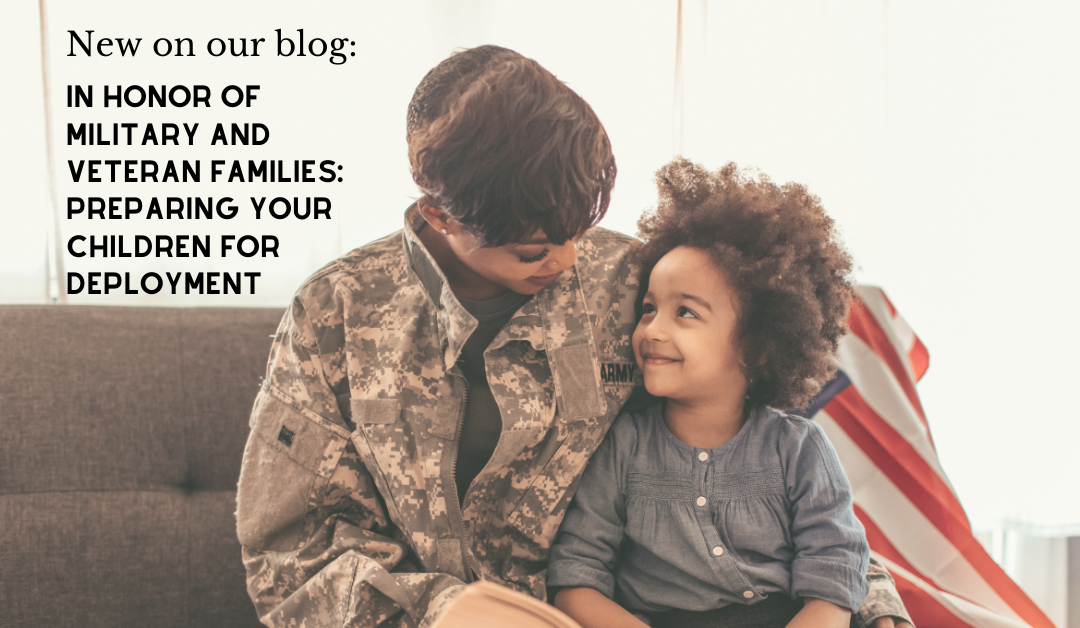
by Sara Hart | Nov 10, 2020 | Blog
While preparing for deployment, many families tend to focus on the logistics, finances and preparations – which are all valid tasks to complete. However, it’s equally important to remember that your children will need mental and emotional support and guidance throughout your deployment. Routines will be altered, quality time with family will look different and many changes will occur. As we honor military families this Veteran’s Day, we offer advice on how to prepare for the deployment cycle.
Pre-deployment
It’s important to invest ample time and effort into your pre-deployment plans, as they will help set guidelines while one parent is away. First, prepare yourself for the emotions and questions your children may have. Speak to other parents who have experienced similar situations and ask for advice on how to go about these situations. Also, discuss with your partner the best possible way to explain deployment to your children, especially if they’re younger. While your children may have fears for the upcoming changes, remember that open communication is a great way to express and process concerns, emotions and plans. Speak with them about their emotions; share plans for regular communication; and discuss changes that may occur.
While deployed
For the …
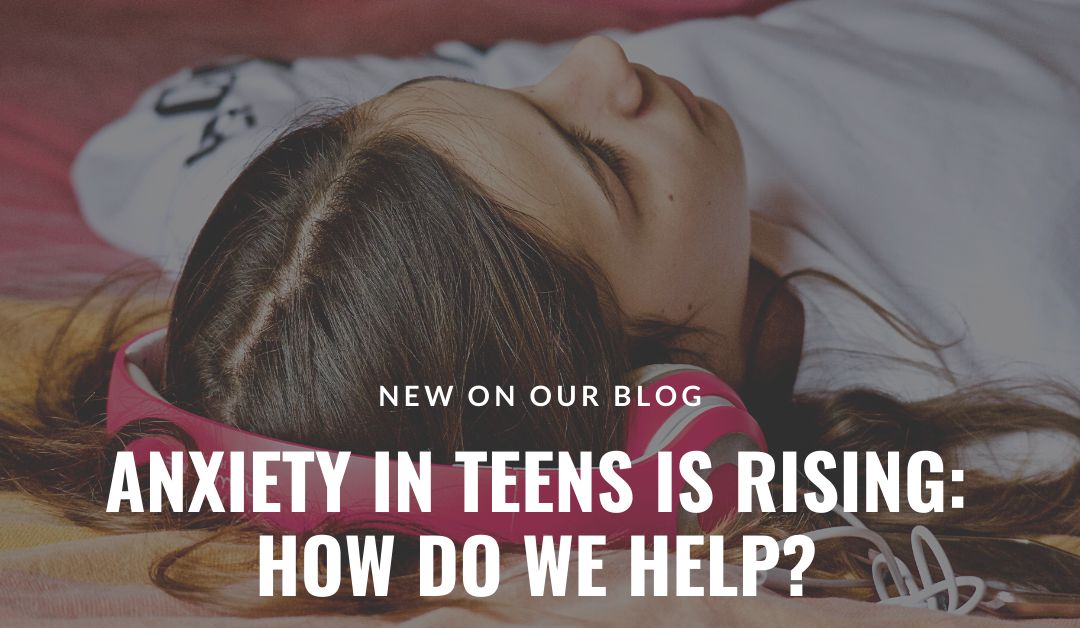
by Sara Hart | Jul 23, 2020 | Blog
The COVID-19 pandemic has led to sudden changes in the social lives and daily routines of teens. With social distancing being enforced and important school events such as prom and graduations being canceled, it’s natural for teens to feel devastated, anxious and disconnected. Nearly one in three teens between ages 13 and 18 will experience an anxiety disorder according to the National Institute of Mental Health. Now more than ever, it’s crucial we encourage our teens to prioritize their mental wellness. Below, we break down steps you can take to help your children maintain positive mental health.
Know the signs of anxiety.
It’s common for teens to feel as if they can’t effectively communicate what they’re experiencing, so these emotions manifest themselves into habits that could show anxiety. For instance, some adolescents feel the need to worry endlessly about routine parts of his or her day. Others also show changes in behavior such as increased irritability. Some may develop negative behaviors such as insomnia, school avoidance or substance abuse. Work with your child to establish healthy coping skills that will ease the stress of the daily struggles he or she faces.
Be mindful of the pressures put on your …





